Pilkington Prize 2024
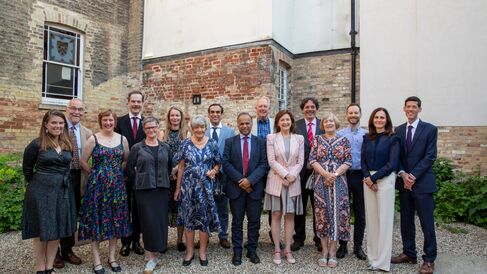
Prize Winners 2024
Congratulations to this year's Prize Winners! We were delighted to welcome our twelve winners to a celebration at St John's College on Friday 21 June.
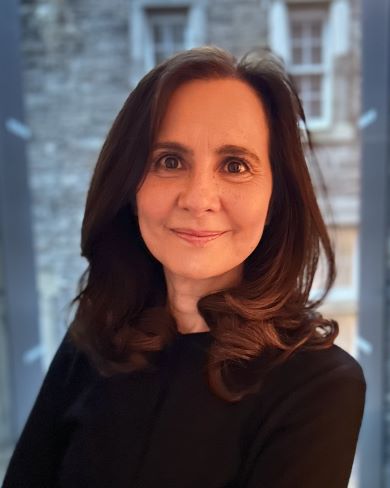 Dr Sui-Yen Ah-See
Dr Sui-Yen Ah-See
School of Clinical Medicine
In her role as theme lead for the Reflection, Learning & Teaching strand, Dr Sui-Yen Ah-See has been responsible, since 2016, for the design, planning and delivery of learning activities such as the Professional Practice Groups, developing the Year 5 ‘Teaching to Teach’ programme, and providing mentoring and pastoral support to many of our students. Student evaluations consistently recognise her excellence as a teacher in both Professionalism and in Dermatology; evaluations of her Dermatology teaching have been consistently excellent both in face-to-face teaching and online.
During the Covid-19 pandemic, as the academic teaching co-lead for Dermatology, Sui-Yen was instrumental in organising and managing the ongoing delivery of the undergraduate dermatology curriculum. She teaches and models excellence in reflective practice and is adept at using student evaluations and quality improvement approaches to constantly improve not only her individual teaching practice but also at the programme level. She has also engaged extensively in her own continuing professional development as an educator, a University of Cambridge representative on the UK Council for Educators of Medical Professionalism and was accredited, in 2022, as a Fellow of the Higher Education Academy. Sui-Yen is seen by students and colleagues alike as someone who contributes consistently to high quality teaching and learning support.
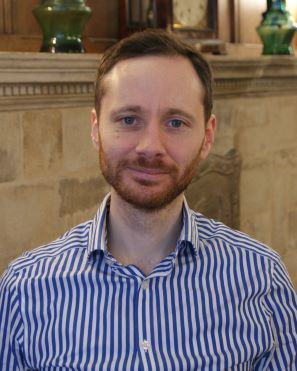 Dr Lee de-Wit
Dr Lee de-Wit
Department of Psychology・Trinity Hall
Since joining the Department of Psychology in 2019, Dr Lee de-Wit has been a driving force behind educational innovation for our undergraduate students. Serving as the Director of the Psychological & Behavioural Sciences Tripos for the past four years, Lee has been deeply involved in this crucial role, displaying a proactive commitment to all facets of the Tripos: from course content, research projects and assessment, to community development and student outcomes. While in this role, he has also fostered vital connections with other collaborating departments.
Lee's passion for psychology as a discipline is evident through numerous initiatives he has spearheaded during his tenure in the department. For instance, he championed efforts to decolonise the curriculum, introduced innovative assessment practices, established new academic roles tailored to the unique needs and future careers of psychology students, and actively collaborated with departmental experts to foster institution-wide dialogues on student wellbeing. Recognizing his exceptional skills, expertise, and commitment to education, he has recently been appointed the Deputy Head of Department for Teaching. In summary, Lee distinguishes himself as a passionate educator who consistently goes above and beyond the call of duty, earning sincere appreciation from both students and colleagues alike.
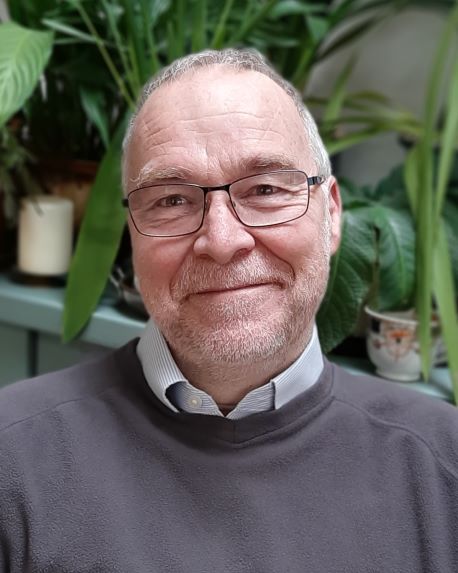 Prof. Steve Edgley
Prof. Steve Edgley
Department of Physiology, Development & Neuroscience・St John's College
As Head of Teaching, Prof. Steve Edgley has a significant leadership role in course management and development, coordinating the teaching portfolio for Medical, Veterinary and Natural Science students and building consensus and agreement between a large number of academics with very different views about course content and teaching practices. He also delivers an exceptionally high standard of teaching and scholarship and has shown a sustained and outstanding commitment to improving and adapting courses, particularly during the Covid-19 pandemic. Steve has exceptional communication skills and an enviable record of introducing novel approaches to reduce the teaching burden on students and improve their mental health. These innovative methods have transformed the understanding of challenging topics, enhanced clinical integration and successfully incorporated modern technologies. The feedback from students is outstanding and consistently amongst the highest in the department.
Steve’s colleagues are unanimous about the enthusiasm and creativity that he brings to all of the activities he undertakes and especially to the remarkable contributions he makes to all aspects of teaching. Steve has provided mentorship in teaching to several generations of new lecturers in the department to guide them on their first steps as a UTO.
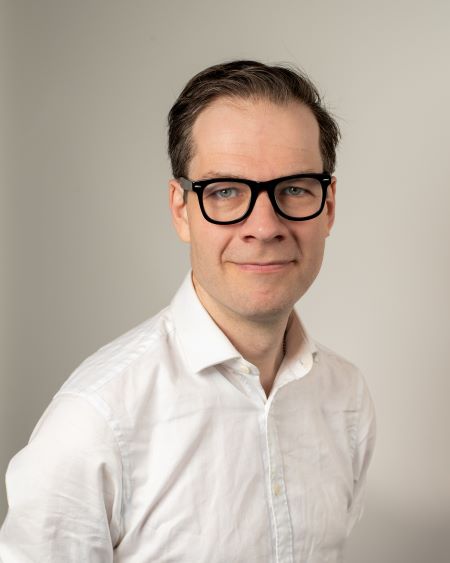 Dr Carl Henrik Ek
Dr Carl Henrik Ek
Department of Computer Science & Technology・Pembroke College
Dr Carl Henrik Ek has developed new courses at both undergraduate and master’s level that combine advanced machine learning and statistics with real-world problems. They are highly innovative in content, delivery and assessment. In particular, they include group work, programming-based assignments, presentations and oral examinations. His courses are praised by students for being very engaging and interactive.
As well as teaching for the Department, Carl Henrik supports students in the ‘AI for Environmental Risks’ Centre for Doctoral Training. In this case, he has been able to break down complex machine learning topics and explain them using first principles that are understandable to students who do not have a background in computer science. All his courses receive excellent feedback from students, who particularly like his ability to connect pure theory with real-world applications. He has been successful in gaining UKRI funding for a new Centre for Doctoral Training in collaboration with the University of Manchester, on Decision Making for Complex Systems. Carl Henrik’s dedication to teaching and his enthusiasm for it are widely admired.
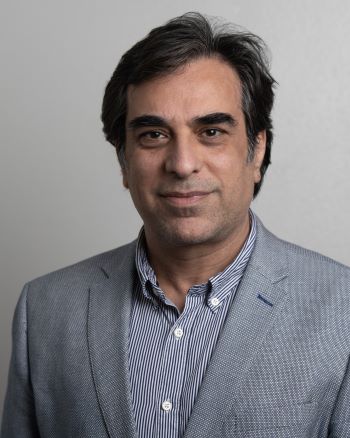 Dr Mahbod Ghaffari
Dr Mahbod Ghaffari
Faculty of Asian & Middle Eastern Studies・Fitzwilliam College
Dr Mahbod Ghaffari has made an outstanding contribution as sole teacher, designer and convenor at the three levels of Persian language courses: through the development of online materials, through his constant striving to further develop his language teaching materials based on his own internationally recognised research in the field, and through the series of international conferences on teaching Persian Language which he has founded at Cambridge.
Mahbod’s tireless enthusiasm for teaching is recognised by the feedback he receives from his students, and by the appreciation and regard he has earned from his colleagues. His outstanding contribution in great part also rests on his success in creating and developing a Persian language course tailored for our third-year Year Abroad undergraduates at Yerevan State University, ensuring both quality of the teaching and the experience, but also a safe environment when travel and stay in Iran is not advisable. Finally, his proactive involvement in the Faculty’s administrative duties and constant readiness to help make Mahbod a well-deserving recipient of the Pilkington Prize.
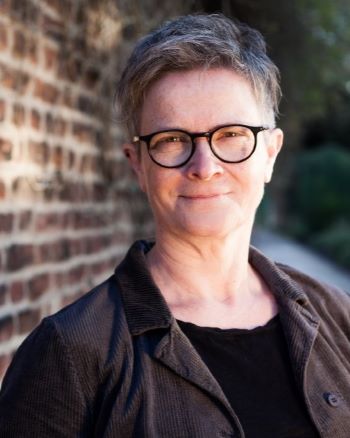 Dr Fiona Green
Dr Fiona Green
Faculty of English・Jesus College
Dr Fiona Green has been an inspirational teacher of undergraduates and postgraduates for more than twenty years. Specialising in American Literature, she inspires students to read, write and think in new and exciting ways. Student feedback on her teaching is outstanding, and focuses especially on the clarity, precision and enthusiasm of her lectures. “Mind-blowing” features often in feedback on her first-year lectures, and the following is a typical response to her final-year poetry course: “these lectures completely changed the way I approach reading”.
Fiona played a leading role in our MPhil course reform, and promoted in particular the strategic and pedagogical benefits of co-teaching. The new ‘umbrella’ MPhil, of which she was the original architect, brings together lecturers from different period specialisms to deliver ‘Research Framework seminars’ whose transhistorical dynamics have proven exceptionally stimulating for teachers and students alike. Co-teaching also features in the postgraduate training course on small-group teaching that she devised with Faculty colleagues, and in the critical writing course she has developed with Christopher Burlinson at Jesus College. Fiona’s practical, collegial, solution-focused approach to training also played a vital role in the Faculty’s preparations for online teaching at the start of the Covid-19 pandemic.
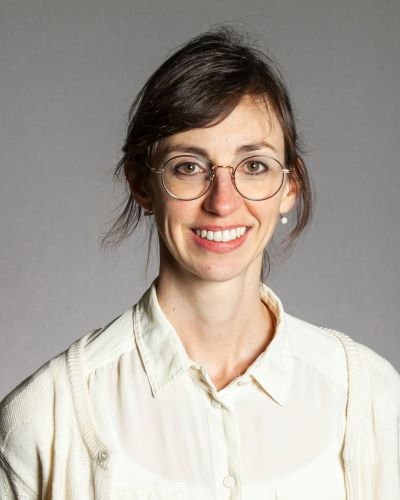 Dr Helen Pfeifer
Dr Helen Pfeifer
Faculty of History・Christ's College
Photo credit: Graham CopeKoga
Dr Helen Pfeifer is an outstanding teacher of History. Since her appointment she has won the highest praise of undergraduates and postgraduates, who attest in feedback to her commitment not only to academic excellence but also inclusion and innovation. She has thoughtfully and sensitively brought issues of diversity and decolonisation to bear on her own teaching and in the Faculty and other institutions of the University. Her third-year Special Subject on Ottoman history is consistently oversubscribed, attracting students of diverse backgrounds who welcome the opportunity to study the Islamic world. Her teaching is a model of good practice, rigorous and yet supportive, striving to bring students together such that they can share and test ideas.
Helen pioneers the use of new technologies and supports colleagues in efforts to develop new pedagogical approaches. She has made a hugely valuable contribution to the reform of Part I of the Historical Tripos, particularly in co-designing a new methodological component, Historical Thinking. Helen’s contributions have helped the Faculty to bring fresh perspectives and new inspiration to teaching, embedded within an ethical commitment to student wellbeing and the diversification of curriculum content and forms of teaching.
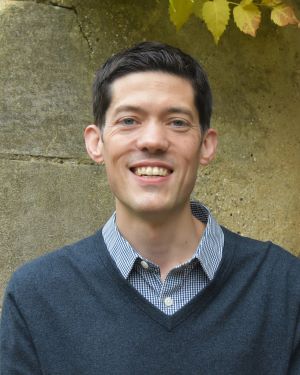 Dr Andrew Sanger
Dr Andrew Sanger
Faculty of Law・Corpus Christi College
Dr Andrew Sanger is an utterly exceptional colleague in every respect. His strengths are rooted in his extraordinary level of commitment to and aptitude for a range of matters that are fundamental to the collegiate University’s academic mission as a beacon of pedagogical excellence. The educational experience and the best interests of students lie at the heart of everything that he does as a teacher. His integrity, enthusiasm, inclusivity, collegiality and passion for his subject shine through, making a profound and lasting impression on students and colleagues, who recognise his remarkable qualities as a teacher and pedagogical innovator.
A rising star in his field, Andrew embodies the very best of research-led teaching. He has played a key role within the Law Faculty in curriculum diversification, leading the redesign of papers in International Law to encourage students to engage with its colonial origins. As the Faculty’s Academic Secretary, he performed what is doubtless the most testing teaching-related role in the Faculty with distinction and great skill, steering the Faculty’s teaching programmes through a uniquely challenging period and playing a key role in planning for the recent significant expansion of the Faculty’s academic staff and its flagship postgraduate programme.
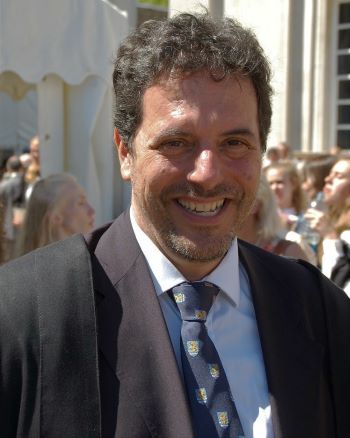 Dr Jossy Sayir
Dr Jossy Sayir
Department of Engineering・Robinson College
Dr Jossy Sayir has consistently delivered a large number of excellent lecture courses at the Department of Engineering, ranging from our fundamental Part IB probability course, through systems and signals specialist courses in Part IIA, and highly specialised research-led courses in Part IIB. He has managed to elegantly link his teaching very closely to his research agenda, and has introduced various innovations into his courses, that have elicited very high student feedback scores. These include innovative ways to teach communication systems, linking his own research work on embedding codes within DNA molecules into the curriculum, and incorporating advanced coding principles in undergraduate labs in ways that have fascinated undergraduate students.
Jossy’s enthusiasm and his innovative teaching approaches are also reflected in student feedback, often describing his teaching as the best part of their time at our Department. He also actively contributes to the University’s and Colleges’ outreach and admissions activities through the delivery of several outreach lectures to prospective students.
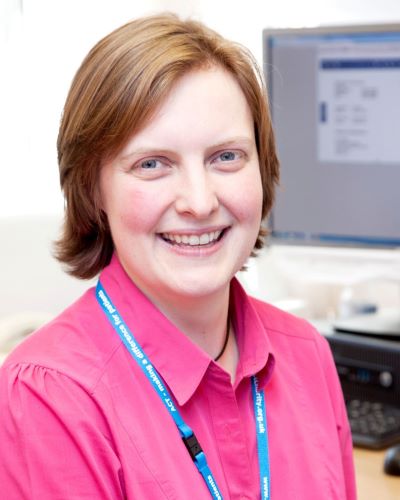 Dr Sybil Stacpoole
Dr Sybil Stacpoole
Department of Clinical Neurosciences・Jesus College
Dr Sybil Stacpoole is an exceptional and enthusiastic medical educator. She leads clinical neurosciences teaching for Cambridge medical students, overseeing a major change in delivery to develop regional teaching during the move to a ‘spiral curriculum’. This was rapidly followed by the challenges of the Covid-19 pandemic, where agile teaching was the name of the game. Whilst redeployed in the unfamiliar role of general medical and Covid-19 consultant, she developed, coordinated and contributed to a much-enjoyed interactive online learning programme for clinical neurosciences and, when students returned, worked with clinical colleagues to significantly expand the ever-popular bedside teaching programme to incorporate smaller groups. Students rate their clinical neurosciences training as one of the best attachments in the Clinical School, and Sybil is often singled out for her excellence in teaching.
Remarkably, Sybil also completed three years’ study towards a Master’s in Medical Education in 2022. She is an experienced standard-setter and question-writer for Final MB exams, and contributes nationally on both fronts to the developing UK Medical Licensing Assessment. Finally, Sybil is a leading figure of the Jesus College Medical & Veterinary Society, building growing links between alumni and current students.
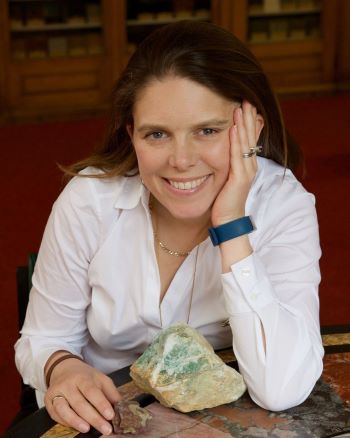 Prof. Alexandra (Sasha) Turchyn
Prof. Alexandra (Sasha) Turchyn
Department of Earth Sciences・Trinity Hall
Prof. Sasha Turchyn is a world-leading educator. She has been a pivotal contributor to the Earth Sciences teaching programme since she began in 2009. She has led courses across all four year groups and contributed to nearly all field courses that are taught.
Realising that there was a critical gap in the curriculum within the Natural Sciences Tripos, Sasha also led the introduction of a new Part IB course in 2022-23: Quantitative Environmental Science. This cross-departmental course explores a range of environmental topics using Part IA Maths for Natural Scientists, ensuring that Cambridge undergraduates in Natural Science will be world leaders in understanding and mitigating global environmental change. Sasha led this endeavour from start to finish, motivating and bringing together a team of colleagues to develop the curriculum, coding-based practicals, and novel assessment methods with computing exams and significant coursework-based assessment. Students and staff alike are raving about the course, which is a real measure of Sasha’s talents and merit.
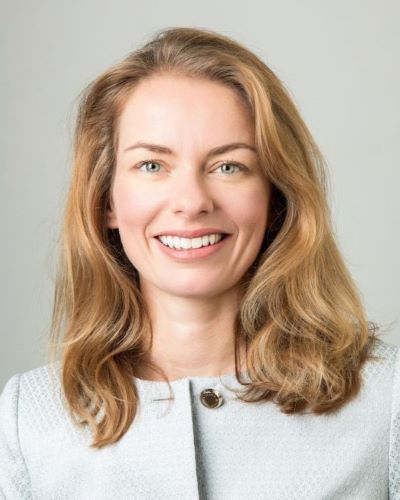 Prof. Julia Wolf
Prof. Julia Wolf
Faculty of Mathematics
Prof. Julia Wolf is an inspiring educator and transformational leader in her various pedagogic roles within the Faculty. She has served as the Director of Taught Postgraduate Education for the past five years, where she has been a hands-on manager of the Part III course. With her deep commitment to both the mathematical education and the overall wellbeing of our students, Julia has been instrumental in reforming the structure of the course to ensure that all our students, with their diversity of backgrounds and interests, have the most positive and fulfilling experience possible during their time in Cambridge.
During the Covid-19 pandemic, Julia worked heroically to protect the quality of the Cambridge education experience, tirelessly coordinating the online provision of lectures, examples classes and office hours, as well as ensuring that the examinations (both online and in-person) were rigorous and fair. She liaised extensively with stakeholders across the collegiate University to establish consistency and consensus. On top of all this, Julia is an exceptionally well-regarded lecturer across all years of the Tripos, with one IA student describing her as an “absolute academic weapon,” and all praising the clarity and structure of her presentation.
